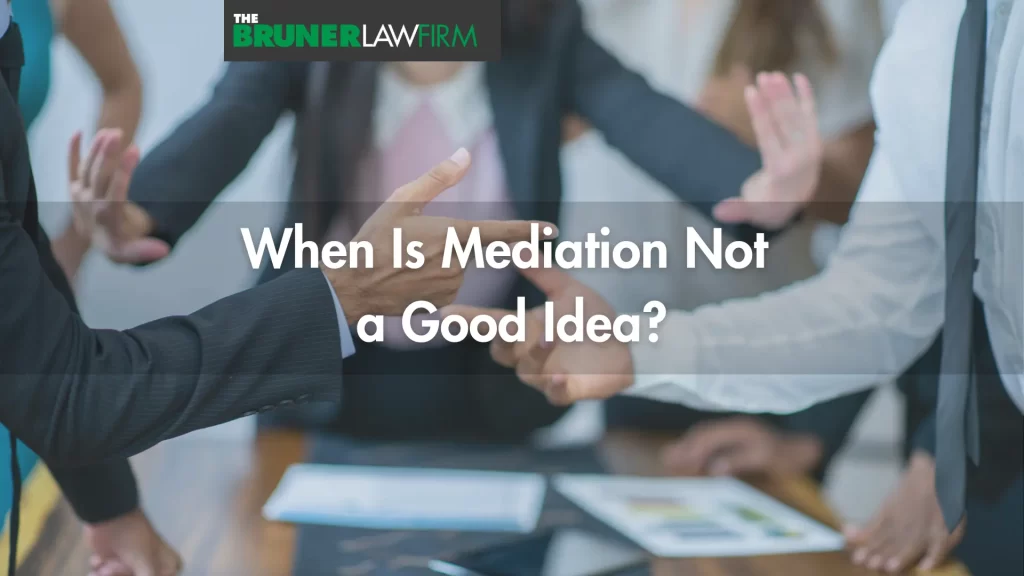
When thinking about a personal injury claim after an accident, many people’s imaginations jump immediately to a lawsuit taking place in a courtroom. While this kind of scene might be common in television dramas and movies, many injury cases never reach the trial stage. Instead, injured individuals often settle their cases out of court via negotiations with the at-fault party’s insurance company.
However, negotiations may not end favorably if the insurance adjuster is unwilling to offer you a fair settlement package. In such cases, you may need to file a formal lawsuit to seek the compensation you deserve. Before your suit reaches the courtroom, you might have a chance to come to an agreement with the other party by attending a mediation session.
In Florida, pre-trial mediation is mandatory in all civil cases. In Alabama, however, whether mediation is compulsory depends on the circumstances. Sometimes, the judge may request that you attend an optional mediation session. There are some factors that might make mediation an unfeasible or undesirable option. When considering whether mediation can help your claim, you should understand the situations in which it can and cannot work.
What Is Mediation?
Mediation is a form of alternative dispute resolution (ADR) in which a mediator attempts to assist two opposing parties in finding an outcome they can both find acceptable. The mediator is usually a retired judge or a neutral legal professional who will use their experience to help both sides understand the legal and practical challenges and opportunities they face as they seek their desired solution. A session usually lasts a day, but the parties can add more time if they believe they are close to reaching an agreement.
What Are the Benefits of Mediation?
For many reasons, parties in civil suits often prefer mediation to a courtroom trial. The many advantages of mediation include:
- Direct, informal communication – Courtrooms are adversarial venues that engender heightened emotions and elevated stress levels. Mediation sessions are far less formal, giving parties an opportunity to explore creative avenues toward solving their problems.
- Relatively inexpensive – Mediator fees are far more affordable compared to the high costs of protracted courtroom battles. Both sides usually split the cost.
- Shorter timeframe – Mediation sessions often happen in a single day, and many cases end successfully within that timeframe. Trials tend to take months or years to conclude.
- Suggestions are non-binding – Mediators will offer suggestions that the parties are free to accept or reject. You do not have to agree to proposals that are not in your best interests. This is different than a court order or a jury’s verdict.
When Should I Avoid Mediation?
 Although mediation offers many benefits, certain circumstances may make it a nonviable path. If you have the option to choose, you might want to forgo mediation under circumstances such as:
Although mediation offers many benefits, certain circumstances may make it a nonviable path. If you have the option to choose, you might want to forgo mediation under circumstances such as:
- Lack of suitable mediator – For mediation to succeed, you need an experienced and impartial mediator who can guide you through the process without fear or favor. If both parties cannot agree on a suitable mediator, you cannot proceed with mediation.
- Bad-faith defendant – All insurance companies want to avoid paying out large sums of money on claims. However, some insurers go too far by refusing claims for no good reason, unfairly obstructing the process, or otherwise operating in bad faith. Mediation may not work if the other side refuses to act reasonably.
- The accident occurred due to recklessness or malicious intent – While most accident-related injuries are the product of negligence, some happen because a party behaved recklessly, maliciously, or with blatant disregard for human life. If this was true in your case, you might be eligible to recover punitive damages in addition to the compensation you deserve. You will need to go to court to recover punitive damages.
- Too soon after injury – It takes time for an injury to heal and for you to learn how expensive it will be in terms of medical costs. You don’t want to go to mediation before you get an accurate idea of the compensation you will need for your recovery.
Contact an Experienced Personal Injury Attorney Today
You may not clearly understand whether mediation will be a good option for your case. Consulting with an experienced personal injury lawyer is essential. The seasoned attorneys at The Bruner Law Firm are committed to serving injured clients in the Florida panhandle and southeast Alabama. We will guide you through every step of your claim, from initial negotiations through mediation, whether compulsory or optional. We also have the experience and resources necessary to fight for your rights in court if it becomes necessary.
Call us today at (850) 243-2222 or contact us online for a free case consultation to learn more about how we can help you.
Related Posts:







